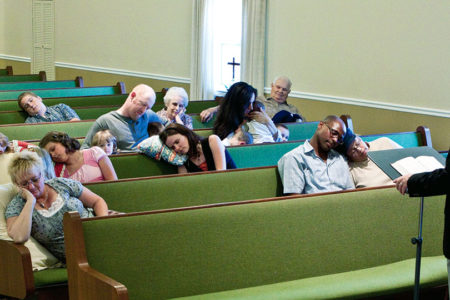A More Perfect Union Sep/Oct 2009
As part of my work with National Religious Broadcasters, I was involved in a small meeting in the Capitol Hill office of a congressional representative not long ago. Known in political circles for his Christian principles, the congressman discussed with us a recent vote in the House of Representatives to pass a stunningly radical bill, the Foreign Relations Authorization Act, advocated by Secretary of State Hillary Clinton.
If it becomes law, it will create within the U.S. State Department a permanent Office for Global Women’s Issues that would, among other things, promote—as part of America’s official foreign policy—abortion and homo-sexuality on a worldwide scale.
As pernicious as it is, however, the bill is only the latest in a series of astonishing positions taken by our current Congress and administration in support of abortion, gay rights, a new openness toward Islam, and the recasting of the federal government as the new property-rights overlord for failing national corporations.
The congressman sharply criticized the failure of much of the Christian church to oppose these new hyperliberal initiatives. Sadly, his words rang true.
When we compare our current national slide into sexual decadence, socialistic economics, and anti-Christian ideas of governance with the philosophical presuppositions held by our Founding Fathers, the differences are shocking. When John Adams wrote to Thomas Jefferson on June 28, 1813, reflecting on the men and women who sacrificed blood, toil, and treasure to the cause of freedom during the American Revolution, here is what he saw: “that army of young fellows” had all been bound together by two critical ideas: First, they had been “educated in the general principals of Christianity.” Second, they had been schooled in the “principals of English and American liberty.”
These two concepts, liberty and Christianity, are intrinsically related. A gospel-centric view of life provides both theological meaning as well as moral limitations to our concept of liberty.
So when my friend in Congress strongly suggested the church is remaining too silent in the face of an aggressively secular and radically humanistic, if not outright pagan, mentality in our nation’s capital, I also had to ask a more basic question: “Exactly what should the church of Christ do to stem this anti-Christian tide?”
It has been my observation that many in our movement have either forgotten or failed to learn God’s revealed position on certain matters. Can we readily articulate God’s position on owning private property? When God issued His Ten Commandments, two dealt specifically with property in a way that presupposes He values the right of private ownership. (See Exodus 20:15, 17.)
What is God’s view on national sovereignty? Acts 17:26 tells us God intentionally created the nations and their boundaries. By contrast, Genesis 11:6 explains how and why the Lord opposed ancient humanity’s attempt to forge a single, unified, global civilization.
God’s principles are not difficult to discern. In fact, the entire first chapter of Exodus is a clear renunciation of partial-birth abortion, selective abortion, and infanticide and is also a call for us to oppose governmental mandates when they collide with God’s clear dictates on matters of life.
When I was in law school, I received an excellent education in the “nuts and bolts” of the practice of law. Sadly, however, my class was the first in that university’s history not to have been given the time-honored instruction on the philosophical principles, most of them of Judeo-Christian origin, underlying our legal system.
In a similar way, I wonder if the church has done the same thing. We know the “nuts and bolts” of social and moral issues. But have we forgotten or neglected the biblical principles that enable us to articulate and advance our positions on such critical issues as the sanctity of life and the definition and importance of marriage and family? Do we appreciate the fact that the sanctity of life is implicit from the very beginning of Genesis, where people were created in God’s “own image” and where God was the divine agent who chose mankind’s form and breathed “the breath of life” into our race (Gen. 2:7)?
Most Christians know homosexu-ality is wrong, yet they may be duped into agreeing with homosexual activists who falsely claim that Jesus said nothing about the subject. Yet Jesus affirmed God’s design for marriage as being between one man and one woman (Mt. 19:4–6). And both the apostles Peter and Jude said God condemned Sodom and Gomorrah for their ungodly immorality (2 Pet. 2:6; Jude 1:7).
If Christian leaders and parents reinforce biblical concepts in both the church and home, we may yet see an entire generation rise up that not only understands the times in which it lives, but also can engage the culture in a way that may yet spark the blessed fires of revival.







